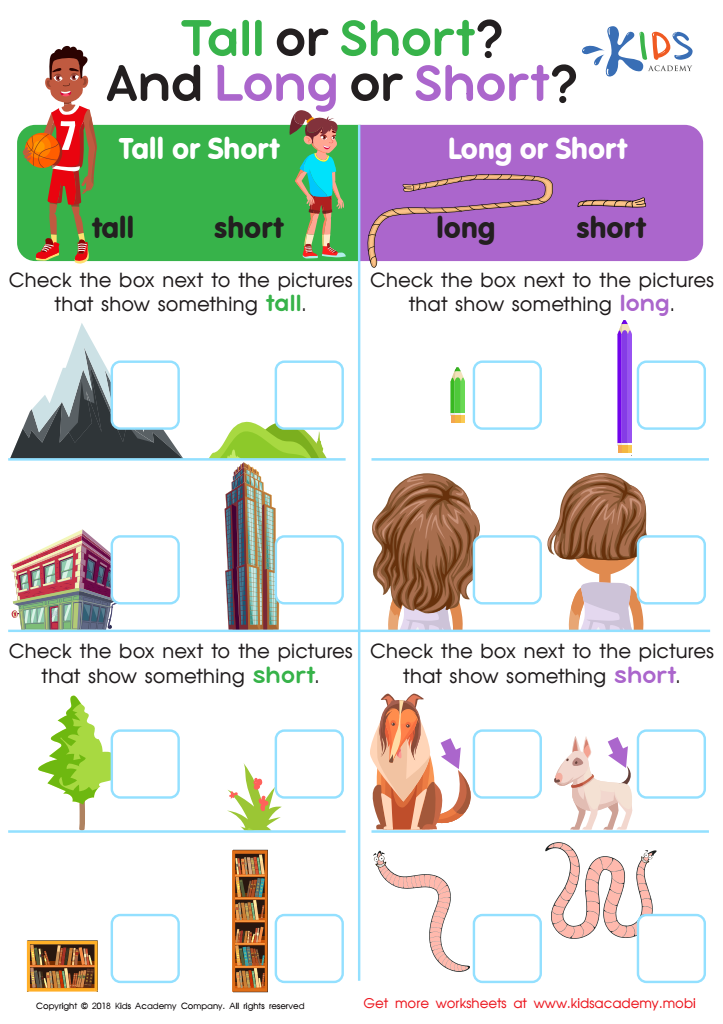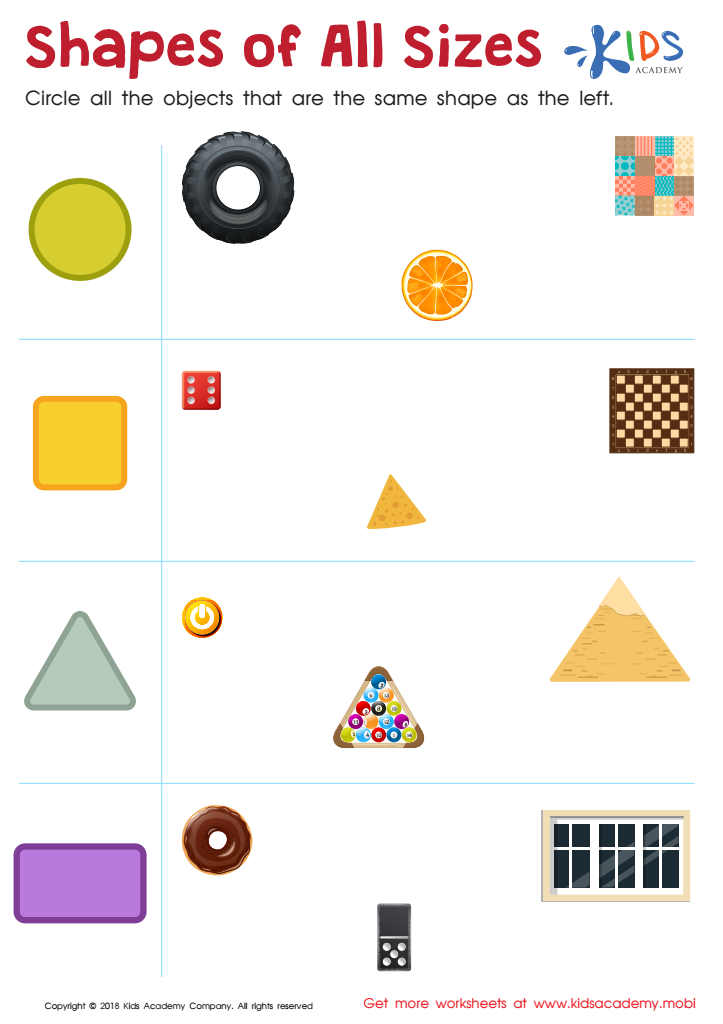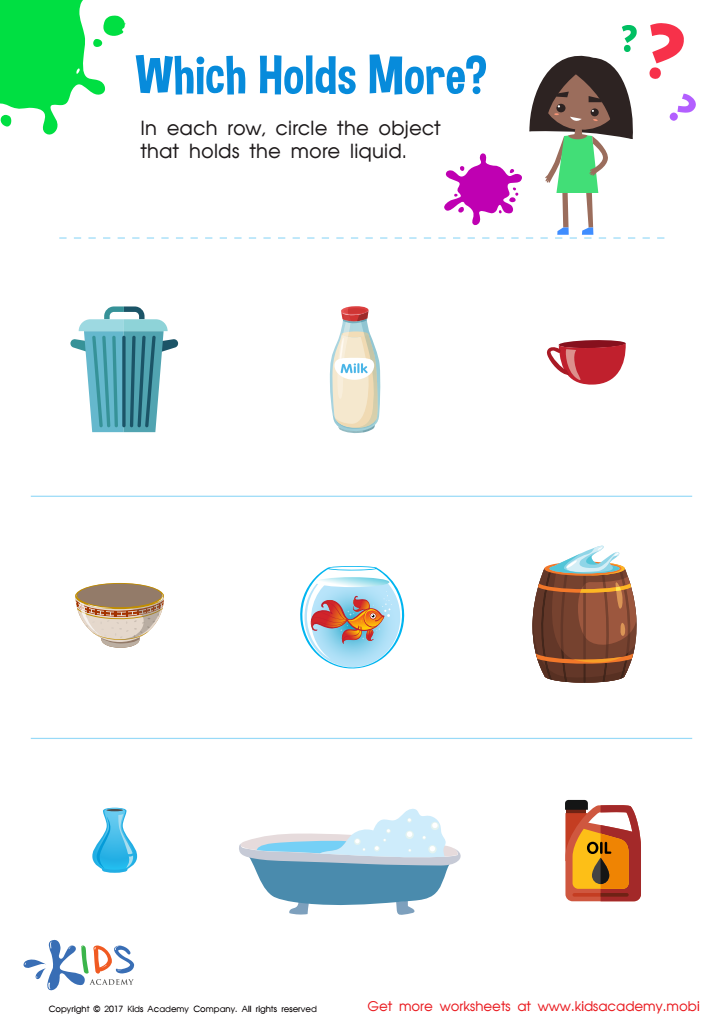Basic measurement concepts Normal Math Worksheets
3 filtered results
-
From - To
Explore our "Basic Measurement Concepts Normal Math Worksheets" tailored for early learners! These engaging worksheets introduce students to fundamental measurement skills, such as length, weight, and volume. With playful visuals and interactive activities, children will grasp essential concepts through hands-on practice. Designed for versatility, these worksheets accommodate various learning styles, making them perfect for classroom settings or at-home learning. Aligned with educational standards, they promote developmental growth while enhancing critical thinking. Foster a love for math and measurement in your students today with our thoughtfully created resources, ensuring a strong foundation for future mathematical success! Grab your worksheets now and make learning fun!


Tall or Short and Long or Short? Worksheet


Shapes of All Sizes Worksheet


Which Holds More: Capacity Worksheet
Understanding basic measurement concepts is crucial for both parents and teachers, as it lays the foundation for essential math skills and critical thinking in young learners. Measurement concepts encompass understanding attributes like length, weight, volume, and time, which are part of everyday life. For example, parents can incorporate measurement when cooking, discussing distances during outings, or tracking time, engaging their children in fun, practical applications.
Teachers benefit from instilling these concepts in the classroom, as they promote reasoning and problem-solving skills. When children understand how to compare and quantify objects, they gain confidence in their abilities to engage with more complex mathematical ideas later on. Additional data shows that proficiency in measurement correlates with improved performance in other areas of math, reinforcing its importance in overall academic success.
Moreover, early exposure to measurement fosters analytical skills, which are essential in science, technology, engineering, and mathematics (STEM) fields. As our society increasingly values these competencies, both parents and educators must prioritize teaching measurement to ensure children are well-prepared for future learning and real-world challenges. Ultimately, emphasizing basic measurement concepts is key to nurturing a child’s intellectual growth and fostering lifelong learning.
 Assign to My Students
Assign to My Students















